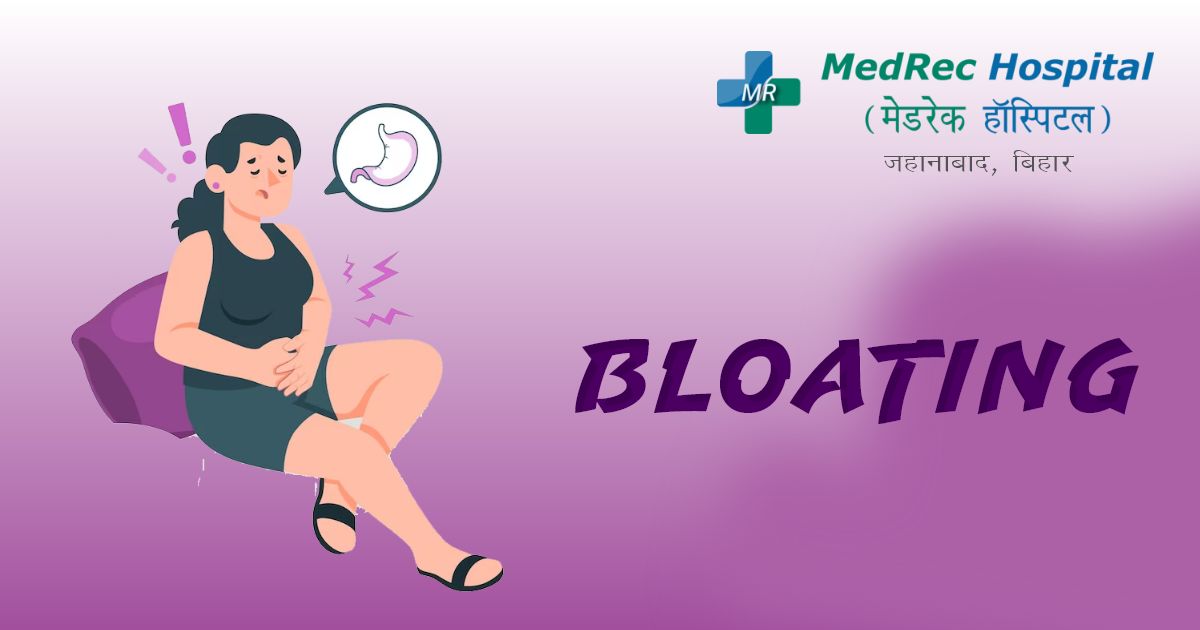
Bloating - Is your tummy feeling fullish? It could be bloating
733
Typically, a bloated stomach hurts, feels tight, and is overstuffed. You could feel bloated even though your abdomen is not swollen. Although hormones and stress can also play a role, digestion problems are typically the cause of bloating. On occasion, a medical condition may be disguised.
What is a bloated stomach?
First and foremost, a bloated stomach is a sensation of tightness, pressure, or fullness in your abdomen. It may be accompanied by an obviously enlarged or bloated abdomen. The sensation could range in intensity from mildly bothersome to agonising. After some time, it normally fades away, but for some people, it keeps happening.
Changes in hormones and digestive issues can cause cycles of bloating. You should see a doctor to find out the source of your swollen stomach if it does not go away.
Causes
Although gas is a typical byproduct of digestion, persistent intestinal gas is a sign that your digestion may be in trouble. As too many carbohydrates were not normally digested earlier in the digestive process, before reaching those gut bacteria, there may be excessive fermentation going on. That can be for a variety of reasons. Perhaps you simply ate too much food too quickly for adequate digestion. Additionally, you can suffer from gastrointestinal (GI) disease or a specific dietary intolerance.
Several potential reasons include
Macronutrient malabsorption Many people struggle to digest certain carbs (sugars). Lactose, fructose, and carbohydrates found in wheat and legumes are a few of the usual offenders. Your body may struggle more with harder carbs because of the intolerance you have, or it could simply be that you are experiencing general issues.
An increase of microorganisms in the small intestine. This occurs when intestinal bacteria from the colon reach the small intestine. These germs could overpower other bacteria that are designed to balance them.
Gastrointestinal functional problems. When your body struggles more with digestion, you may have IBS or functional dyspepsia.
Unknown reasons. After eating, gas and bloating are frequent symptoms. Even when their gas volume is normal, some people nonetheless feel bloated and gassy. This syndrome frequently co-occurs with IBS and other neurological illnesses of the gut-to-brain pathways.
Digestive Materials. These may be made up of solids, liquids, or gases. When there is a backup, digestive content can accumulate in your system.
An obstruction in your digestive system will lead to the digestive tract having less space
The following list of factors can contribute to build-up:
Constipation. You may experience brief constipation as a result of your diet or way of life, or you may experience persistent constipation as a result of a medical problem. Food that has just been digested stays longer in the intestines while it waits to pass because of backed-up faeces in the colon. Bloat results from everything expanding to accommodate the additional volume.
Other causes
The usual causes of intermittent bloating are intestinal, hormonal, or both. Additionally, these factors may make you feel generally ill and exhausted. while your symptoms persist.
They gradually disappear and are probably not serious. However, you should contact a doctor to rule out other medical causes if your bloated stomach worsens, or if you have other symptoms of a serious disease, including fever or vomiting. These symptoms could be:
Ascites. This is fluid that has gradually accumulated in your abdominal cavity. It is typically brought on by liver disease, however renal or heart failure can also play a role.
Pancreas Dysfunction. In this type of pancreatic dysfunction, the pancreas is no longer able to produce enough digestive enzymes to fulfil its role in the digestive process.
Cancer. It is crucial to get yearly checkups with your doctor to screen for cancer.
Symptoms
You may be bloated if;
Your stomach hurts or feels larger than normal.
Your stomach is rumbling or making noises.
You fart more frequently than usual.
Prevention
Exercise frequently to enhance digestion and lessen bloating; it can also be beneficial when you already feel bloated.
Avoid swallowing air while chewing, and drink lots of liquids.
If constipated, consume foods high in fibre and opt for smaller, more frequent meals rather than larger ones.
Rub your stomach in a right-to-left motion to release suffocated wind.
Treatments
Often, there is no need for treatment for bloating. Your need for treatment will depend on the underlying cause.
Treatments could be:
- Being recommended to a dietitian if typical dietary advice, such as avoiding foods that make you bloated, is ineffective.
- Access a doctor so they can order some testing to determine what might be causing your bloating.
Complications of Bloating
If you have a bloated stomach, consult your doctor if:
- It gets worse.
- Continues for longer than a week.
- Is hurting continuously.
- Comes with illness-related symptoms including bleeding, vomiting, or fever.
For further information please access the following resources:
Emergency : +91 89686 77907
Front Desk : +91 98018 79584
Page last reviewed: Mar 10, 2023
Next review due: Mar 10, 2025







.jpg)
.jpg)
.jpg)
.jpg)
.jpg)
.jpg)